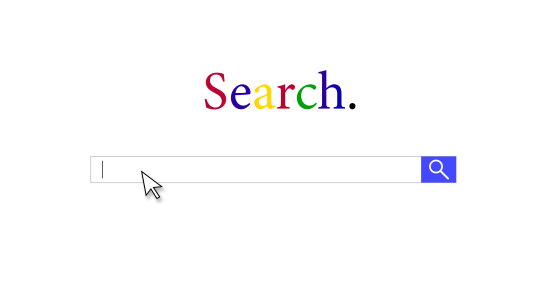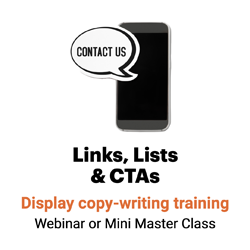Optimize web heads for humans as well as Google
If Google can’t find it, to paraphrase Jeff Foxworthy, can’t nobody find it.

Indeed, one key role of web heads is to help Google find your page.
“If the story is about the dangers of salmonella in tomatoes in California, by golly, the headline probably needs to have ‘California,’ ‘bacteria’ and ‘tomatoes’ in it,” says Sara Dickenson Quinn, visual journalism teacher at The Poynter Institute. “Maybe ‘salmonella,’ too.”
How search has changed
But this ain’t your daddy’s Google. Back in the day, keyword stuffing and inbound linking — from anywhere! And in any way! — were the best paths to finding readers, or at least to helping them find you.
Those were the bad old days, when optimized web pages read like … well, like optimized web pages: There are many wedding rings on the market. If you want to have a wedding, you will have to pick the best ring. You will also need to buy flowers and a wedding dress.
But all that has changed — thank goodness — with the 20-year evolution of Google algorithms.
- PageRank, 1998. Inbound links: 75% of SEO success; keyword stuffing: 25% of SEO success
- Panda, 2011. Inbound links: not affected; keyword stuffing: quality more important
- Penguin, 2012. Inbound linking schemes punished; keyword stuffing: punished
- Hummingbird, 2013. Inbound links: still punished; keyword stuffing: still punished. Semantic & long-tail search supported
Plus, with semantic search, Google can now intuit (I believe that’s the technical term) what you’re writing about even without specific search terms. If you’re selling cheap tacos in Tucson, for instance, Google can help searchers find you, even if you don’t use the words cheap, tacos and Tucson.
Finally, there’s long-tail search. These days, web visitors don’t search for simple terms like “LAX flight delays.” Instead, they’re more likely to ask a longer, more conversational and more precise question: “Will Delta Airlines flight 457 be delayed out of LAX today?” That’s especially true of mobile voice search: When we dictate rather than type our searches, apparently, we tend to be more free with words.
All of which means that now, your best path to SEO success is to write a good piece that people read and share.
Here’s what hasn’t changed: Your headline still gets a header (h1) tag on the portal, which means it can deliver huge SEO benefits.
“It’s an endorsement of headline writers by Google,” jokes Andy Bechtel, associate professor, School of Journalism and Mass Communication at UNC-Chapel Hill.
Include these elements in web heads.
To optimize your headline for search engines, consider including:
- Keywords. These are the common words and phrases visitors would use to describe the subject of your web page — “social media jobs,” “communication measurement” or “executive communications,” maybe. Learn to find keywords for your headline.
- Proper names. The Washington Post’s Gene Weingarten once called a column about headline SEO, “Gene Weingarten column mentions Lady Gaga.” Names of people, places, organizations and things are common search queries. To match those searches, include commonly used names in your headline.
- Full personal names. I know, I know. Your style guide calls for using your CEO’s last name only in headlines. But people are more likely to search for first and last names. Want folks to find your page? Use both.
- Unique elements. Better to be found by the right searchers than by all searchers — or by none at all. So include elements that are unique to your web page.
- Geographic references. “Epilepsy treatment in Portland, Oregon,” for instance, will compete with only 399,000 Google results. But “epilepsy treatment” without the location will compete with 29.8 million.
“Strive for relevance to likely search queries,” advises Eric Ulken, assistant managing editor of digital at The Seattle Times, “not just popular ones.”
Leave these elements out of web heads.
To make the most of your headline, don’t include:
- Extra words. Keep headlines short — about 55 characters or less, Ulken advises. Longer than that, and they can get truncated in search results.
- Gobbledygook. Nobody searches for words like “world-class,” “cutting-edge” and “next-generation.” Gobbledygook not only clutters up your copy for real readers, it also dilutes your keywords for search engines, as well.
- Obscure words. Back away from that thesaurus. Web headlines are no place to show off your vocabulary. Reach for the common word, not for the clever one. “There’s no reason to use ‘temblor’ when ‘earthquake’ will do,” Ulken says.
- Journalese. Trust me: Your readers aren’t searching for “area man” or “local festival.”
- Punny phrases. Feature heads work great in print. Online, they confuse search engines and readers looking at indexes of stories. So make web heads clear and explanatory. Think of it as “the pursuit of the literal,” Ulken says.
“Google has no sense of humor,” Bechtel says.
Make your headline your page title.
Multiply your Google juice by making your web head your page title. Google gives bonus points (yes, technical terms again) to web pages with the same headline and page title.

But — and as PeeWee Herman says, there’s always a big but — here’s a workaround that allows you to use creative headlines online. Put the creative headline on the content page; use your page title for SEO.
Or, steal this trick from the BBC: Create a short headline for readers that you use in indexes and at the top of your content page, for readers. Then add a longer headline underneath — aka a deck — and pack that puppy with search terms. Here’s how it works:


US dog food recall after euthanasia drug found
A US pet food company says traces of a drug used to euthanise animals have been found in some of its products, leading to a large recall
Practice ‘proactive SEO.’
As you learn more about popular queries on your topic, you might also be able to develop stories and web pages to match those trending topics.
“Done right, this isn’t shameless hit-chasing,” Ulken says. “It’s finding out what your audience wants to know and giving it to them.”
Optimize for people, too.
“When things get tough, remember … You’re not writing for Google; you’re writing for people, with Google in mind,” Ulken says. “Sometimes headline writers get carried away with SEO. It’s counterproductive to put these goals ahead of clarity and common sense.”
Amen.
____
Sources: Andy Bechtel, “Writing Headlines for Digital and Mobile Media,” Poynter News University, Dec. 5, 2013
David Wheeler, “‘Google Doesn’t Laugh’: Saving Witty Headlines in the Age of SEO,” The Atlantic, May 11, 2011
Kevin Allen, “Witty headlines: Black and white and dead all over (because of SEO),” Ragan’s PR Daily, May 13, 2011
“Writing Online Headlines: SEO and Beyond,” Poynter News University
Eric Ulken, “Writing Headlines for the web 2010,” Poynter News University
Gene Weingarten, “Gene Weingarten column mentions Lady Gaga,” The Washington Post, July 18, 2010
Eric Ulken, “This headline not written for Google,” OJR: The Online Journalism Review, Oct. 20, 2009
Steve Lohr, “This Boring Headline Is Written for Google,” The New York Times, April 9, 2006
Steffen Fjaervik, “Headlines: Boring Is Better than Useless,” PoynterOnline, April 10, 2006
Steffen Fjaervik, “Please, Please, Please Write Informative Headlines,” PoynterOnline, Jan. 21, 2005

Leave a Reply